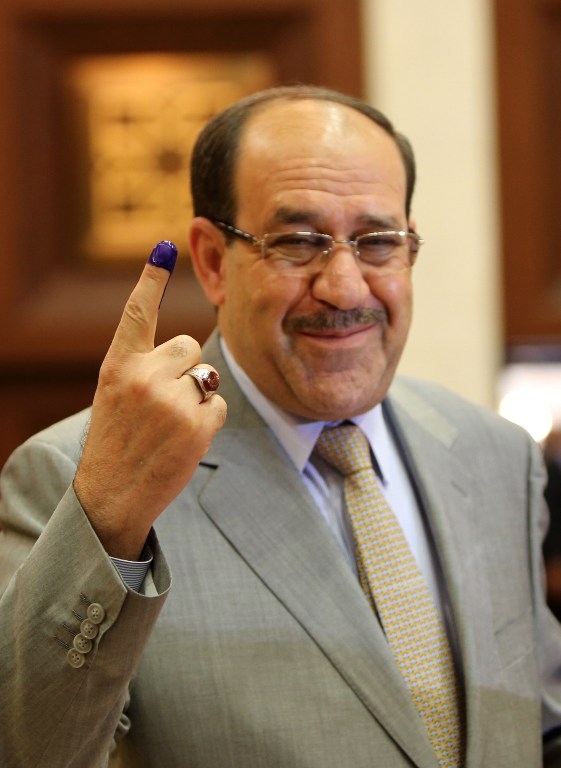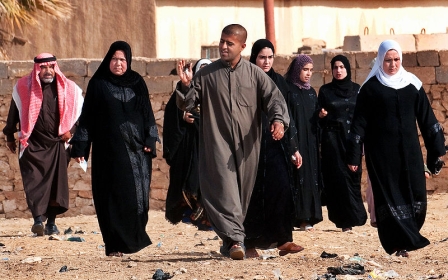Maliki confident of Iraq win, but won't cling to premiership

Iraq's prime minister said Thursday he has enough support to keep his post, but with election results not due for weeks and parties bitterly divided, forming a government will probably take months.
Nuri al-Maliki, who is seeking a third term in office, will have to court disaffected parties within his own Shiite community, as well as vocal Sunnis and Kurds who angrily oppose his rule, but he expressed confidence following Wednesday's polling.
His remarks to journalists came as new figures showed April was among the bloodiest months since Iraq was embroiled in a brutal Sunni-Shiite sectarian war that left tens of thousands dead in 2006 and 2007.
The protracted surge in bloodshed, with more than 3,000 people killed already this year, is among the long list of complaints, along with rampant corruption, high unemployment, and what government critics say is insufficient improvement in public services.
Preliminary results in the election which the Middle East Eye covered through a live blog are not expected for at least two weeks. Initial election commission figures said around 60 percent of 20 million eligible people had voted.
New MEE newsletter: Jerusalem Dispatch
Sign up to get the latest insights and analysis on Israel-Palestine, alongside Turkey Unpacked and other MEE newsletters
The turnout in 2010 was 62 percent.
Weeks till results
As was the case previously, forming a government is likely to take months, but Maliki said on Thursday that he had the votes to put together a coalition.
"We have confidence that we will achieve a political majority," he told reporters in Baghdad's heavily fortified Green Zone.
"We have an ability to pass the 165 (seat threshold)" required to form a majority government.
However, he insisted he would not cling to the post: "My mother did not give birth to me as a minister or a prime minister. ... I am not interested in this subject [of being premier]."
While Maliki's bloc is tipped to win the most seats, no single party is expected to win a majority on its own, and Iraq's various political alliances and communal groups will have to form coalitions.
Complicating matters is the fact that the three main positions of power - the president, typically a Kurd, the prime minister, normally a Shiite, and the speaker of parliament, usually a Sunni Arab - are often negotiated as an encompassing package.
"Finding a balance between the three communities - Sunnis, Shiites and Kurds - is not that easy of a process," said Ayham Kamel, Middle East and North Africa Director for Eurasia Group.
Kamel predicted forming a government could take three to six months, noting: "It's a bit difficult to do all of these things at once."
Wednesday's election, the first since US troops withdrew in late 2011, came amid a surge in bloodshed, with new government figures showing more than 1,000 Iraqis killed last month alone.
Figures compiled by the United Nations and AFP also illustrated the continued spike in unrest.
On election day alone 14 people were killed, including two election workers.
Middle East Eye delivers independent and unrivalled coverage and analysis of the Middle East, North Africa and beyond. To learn more about republishing this content and the associated fees, please fill out this form. More about MEE can be found here.


